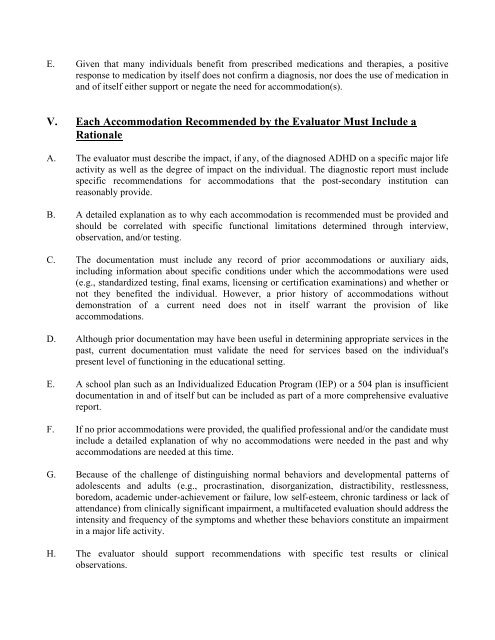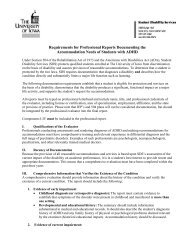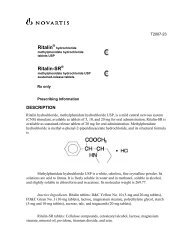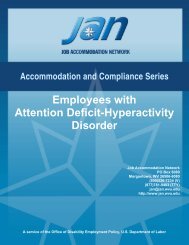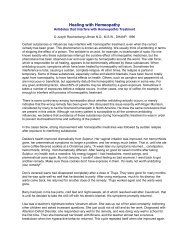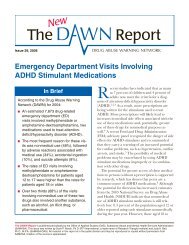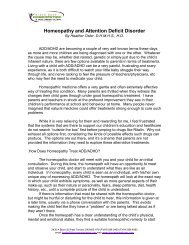Documentation Requirements for Attention ... - ADHD Info Centre
Documentation Requirements for Attention ... - ADHD Info Centre
Documentation Requirements for Attention ... - ADHD Info Centre
Create successful ePaper yourself
Turn your PDF publications into a flip-book with our unique Google optimized e-Paper software.
E. Given that many individuals benefit from prescribed medications and therapies, a positive<br />
response to medication by itself does not confirm a diagnosis, nor does the use of medication in<br />
and of itself either support or negate the need <strong>for</strong> accommodation(s).<br />
V. Each Accommodation Recommended by the Evaluator Must Include a<br />
Rationale<br />
A. The evaluator must describe the impact, if any, of the diagnosed <strong>ADHD</strong> on a specific major life<br />
activity as well as the degree of impact on the individual. The diagnostic report must include<br />
specific recommendations <strong>for</strong> accommodations that the post-secondary institution can<br />
reasonably provide.<br />
B. A detailed explanation as to why each accommodation is recommended must be provided and<br />
should be correlated with specific functional limitations determined through interview,<br />
observation, and/or testing.<br />
C. The documentation must include any record of prior accommodations or auxiliary aids,<br />
including in<strong>for</strong>mation about specific conditions under which the accommodations were used<br />
(e.g., standardized testing, final exams, licensing or certification examinations) and whether or<br />
not they benefited the individual. However, a prior history of accommodations without<br />
demonstration of a current need does not in itself warrant the provision of like<br />
accommodations.<br />
D. Although prior documentation may have been useful in determining appropriate services in the<br />
past, current documentation must validate the need <strong>for</strong> services based on the individual's<br />
present level of functioning in the educational setting.<br />
E. A school plan such as an Individualized Education Program (IEP) or a 504 plan is insufficient<br />
documentation in and of itself but can be included as part of a more comprehensive evaluative<br />
report.<br />
F. If no prior accommodations were provided, the qualified professional and/or the candidate must<br />
include a detailed explanation of why no accommodations were needed in the past and why<br />
accommodations are needed at this time.<br />
G. Because of the challenge of distinguishing normal behaviors and developmental patterns of<br />
adolescents and adults (e.g., procrastination, disorganization, distractibility, restlessness,<br />
boredom, academic under-achievement or failure, low self-esteem, chronic tardiness or lack of<br />
attendance) from clinically significant impairment, a multifaceted evaluation should address the<br />
intensity and frequency of the symptoms and whether these behaviors constitute an impairment<br />
in a major life activity.<br />
H. The evaluator should support recommendations with specific test results or clinical<br />
observations.


